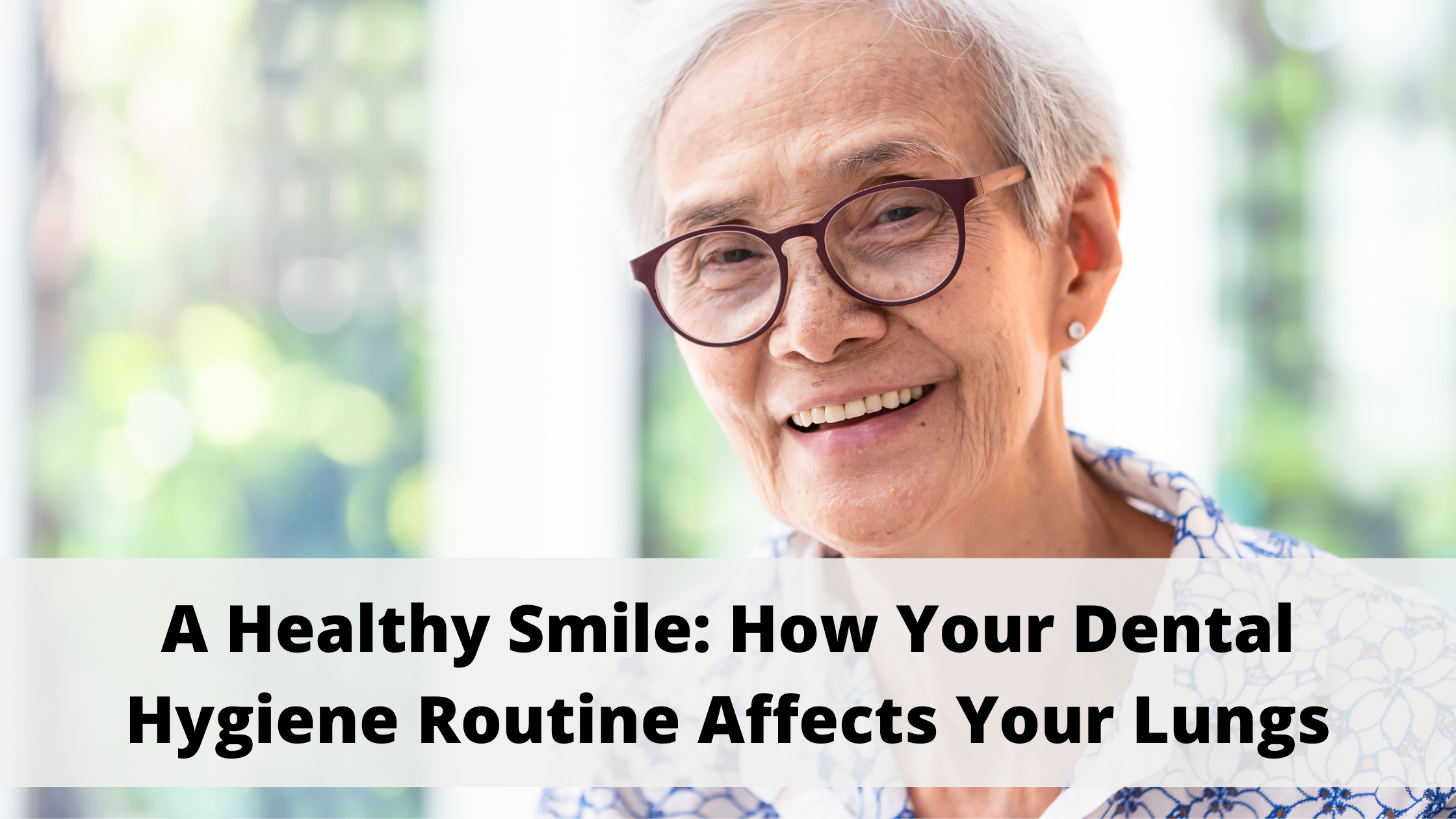
If you have chronic obstructive pulmonary disease (COPD), you know that your lung health is directly linked to your systemic health. Just having COPD puts you at a higher risk for respiratory infection, heart disease, high blood pressure, and even mental health conditions like depression and anxiety. But did you know that there’s even a link between your oral health and COPD?
Chances are, you’ve been told from a young age that brushing your teeth will help you prevent cavities and have a nice smile. But this leaves out a lot of details about how your oral hygiene plays a bigger role in your overall health and wellbeing. According to a study funded by the COPD Foundation, people with severe COPD have poor oral hygiene and they also have poor oral health-related quality of life.
{{cta('fa8abc2a-1e88-4fa3-82fd-1cb5b9ed43b2','justifycenter')}}
In this post, we’ll discuss some of the reasons COPD patients tend to have poor oral health in comparison to the general population and we’ll also give you some tips for improving your oral health routine in order to live more comfortably with COPD. If you have any questions, please don’t hesitate to leave them in the comment section below so we can get back to you. Alternatively, you can reach out to your doctor for more information about this subject.
How Does COPD Affect Your Oral Health?
When someone is told that two seemingly unrelated organs in the body like the lungs and the teeth or gums are inextricably linked, they’re often surprised. However, the closer you look, the more you’ll realize that they’re related in a number of ways, whether it’s directly or indirectly. The body, as a whole, is a system, so it’s not surprising that something that affects one part will eventually have an effect on the whole.
The Effects of Smoking
The first reason that COPD patients are more likely to have dental health issues is that most COPD patients either currently smoke or were smokers in the past. According to the American Lung Association, around 85 to 90 percent of COPD cases are caused by cigarette smoking and around 38 percent of COPD patients report that they are still smokers. Over the decades, evidence has consistently shown that smoking is incredibly bad for your teeth and gums.

In your mouth, there is a constant battle going on between good bacteria which cleans your teeth and gums, and bad bacteria which leads to tooth decay and gum disease. Smoking negatively affects the quality of your saliva by destroying protective macromolecules, proteins, and enzymes. In other words, the immunological aspect of your saliva is severely hampered the more you smoke.
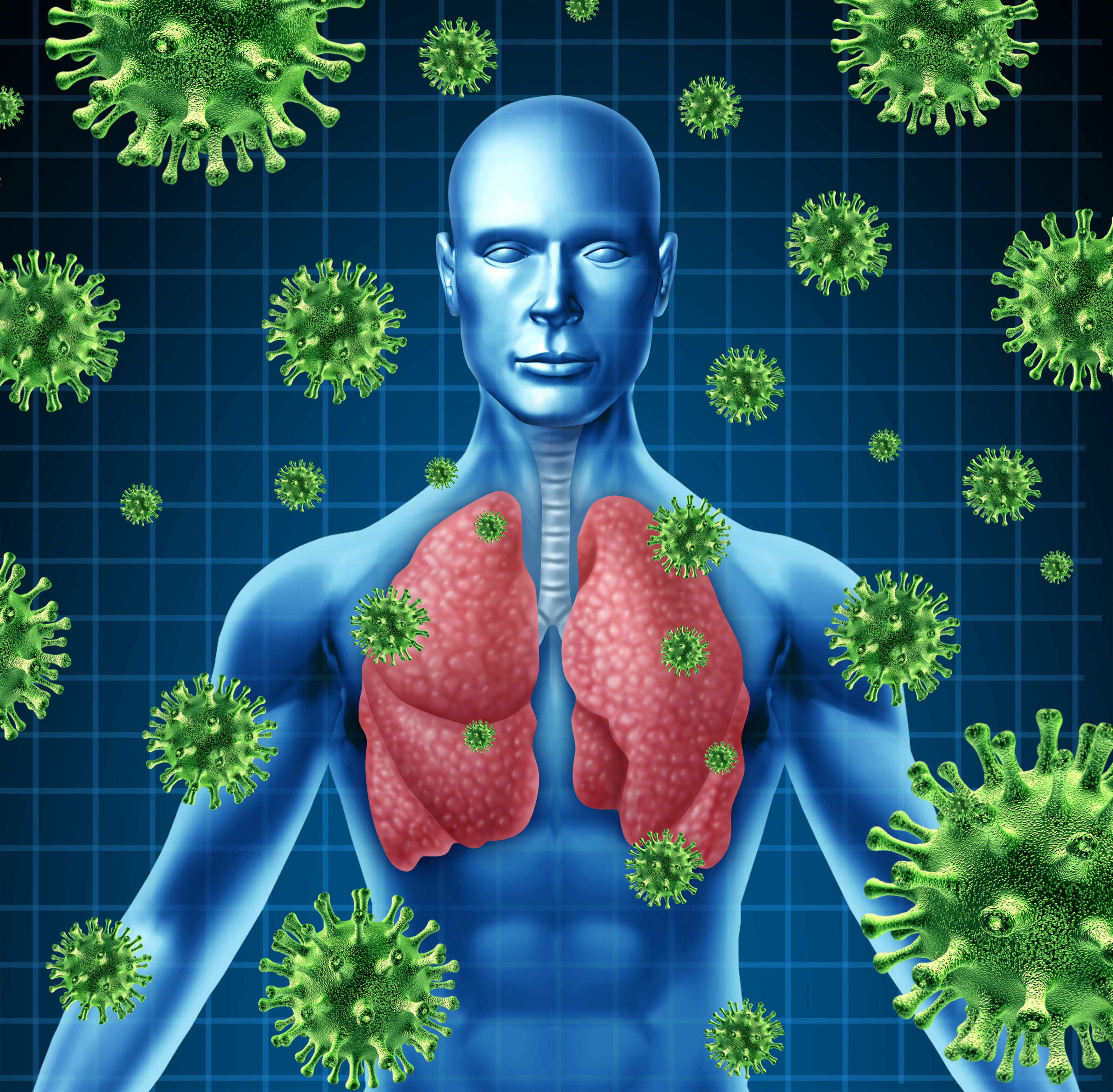
Smoking also affects your immune system as a whole meaning your body will be less equipped to deal with an infection in your gums or teeth. This study shows that cigarette smoking can have one of two effects on the body. It either exacerbates immune responses leading to chronic inflammation in the body or it attenuates the immune response. Either way, the immune system is less capable of doing its job and warding off infections before they become serious or even life-threatening.
Changes in Your Routine
There’s no doubt about it, being diagnosed with COPD can be life-changing. You might be pressured by your doctor or family to make sudden and drastic changes to your lifestyle, all of which can be daunting and feel like the weight of the world is on your shoulders. More often than not, this causes people to fall back on aspects of their daily routine that they’ve kept up on for many years like practicing good oral hygiene and even making it to the dentist regularly.

Considering the fact that COPD patients visit their doctor more frequently than the general population and many of them are working and maintaining their personal lives and relationships, it can be very difficult to find time to make it to the dentist. And the longer this goes on, the more likely it is that you could develop something like gum disease or periodontitis without even knowing.
COPD Medication
Believe it or not, the medication you take for COPD is another thing that could be causing a decline in your oral health. According to this patient education manual created by the American Thoracic Society, COPD medication can cause dry mouth, a condition where your salivary glands do not produce enough saliva. While this may seem rather harmless, it can actually be quite dangerous if it’s prolonged because saliva plays such a vital role in protecting your teeth and gums.
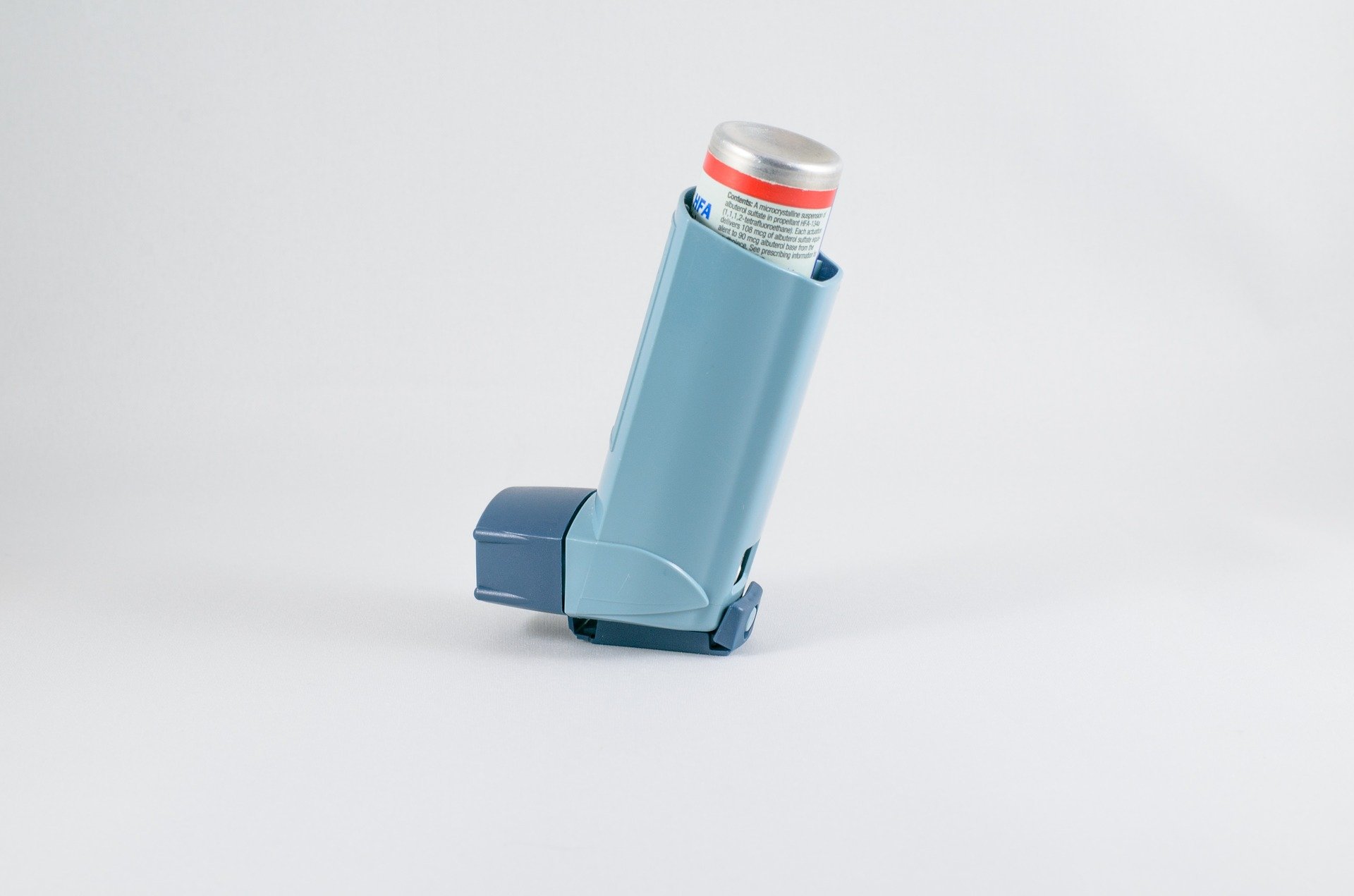
Inhaled bronchodilators (both short- and long-acting) can cause dry mouth. These medications are used to open up the airways to help you breathe easier and help them clear mucus. Also, inhaled anti-inflammatory medication (corticosteroids) like beclomethasone, budesonide, or fluticasone are known to cause dry mouth. Since these medications are a core part of your treatment plan, it’s best not to completely eliminate them, but to find a workaround for coping with dry mouth instead. This article will give you a good overview of how to deal with dry mouth.
Another potential issue caused by COPD medications is something called oral thrush. This is an infection that occurs in the mouth and throat due to a weakened immune system caused by inhaled medication. Typically, this condition is not serious, but it can cause discomfort while eating and you may need to take antifungal medication in order to get rid of it. Oral thrush is also known to cause or contribute to dry mouth.
How Does Your Oral Health Affect COPD?
Similar to how COPD affects your oral health, there’s also a mountain of evidence suggesting that your oral health can negatively affect your COPD. According to a study published in the Journal of Periodontology, periodontal disease may increase the risk of respiratory infection such as pneumonia in COPD patients. This is a condition that causes the alveoli (tiny air sacs in the lungs) to fill with fluid leading to a chronic cough and breathlessness.
It Can Alter Your Diet
Probably the most likely way that your oral health will affect your lung health is by altering your diet. If you’ve read our articles here at LPT Medical before, you likely know how important your diet is when it comes to reducing chronic pain while preventing breathlessness and fatigue. Most COPD patients should maintain a diet high in protein, healthy fats, and fiber, however, it depends on your individual circumstances.

As we get older, our dental health declines significantly. According to Boston Magazine, people between the ages of 35 and 44 years old have lost at least one tooth. And between the ages of 65 to 74, about 26 percent of people have lost all of their teeth. This is due to a number of causes such as tooth decay, gum disease, periodontal disease, and even traumatic injury. This can impact your diet because it may prevent you from eating certain foods.
-jpg.jpeg)
Unfortunately, foods that are easy to consume and provide us with a lot of energy also tend to be the worst for us. Things like fruit juice, soda, yogurt, and processed foods are convenient, but they’re also laden with sugar and additives that will exacerbate your respiratory symptoms and leave you feeling exhausted and unmotivated. Taking some extra time to cut or break your healthy foods up into smaller pieces may remedy this issue.
It Can Lead to Infections
Most dental infections occur in the tooth, gums, or supporting structures of the teeth. But did you know that dental infections can actually spread to other parts of the body if they aren’t treated? Most COPD patients have a weakened immune system meaning it will be more difficult for your body to fight it off. In certain cases, these infections can be severe and even life-threatening so it’s best to always seek help sooner rather than later. What’s more, dealing with dental issues can be extremely draining and it will take time and energy away from your COPD routine.
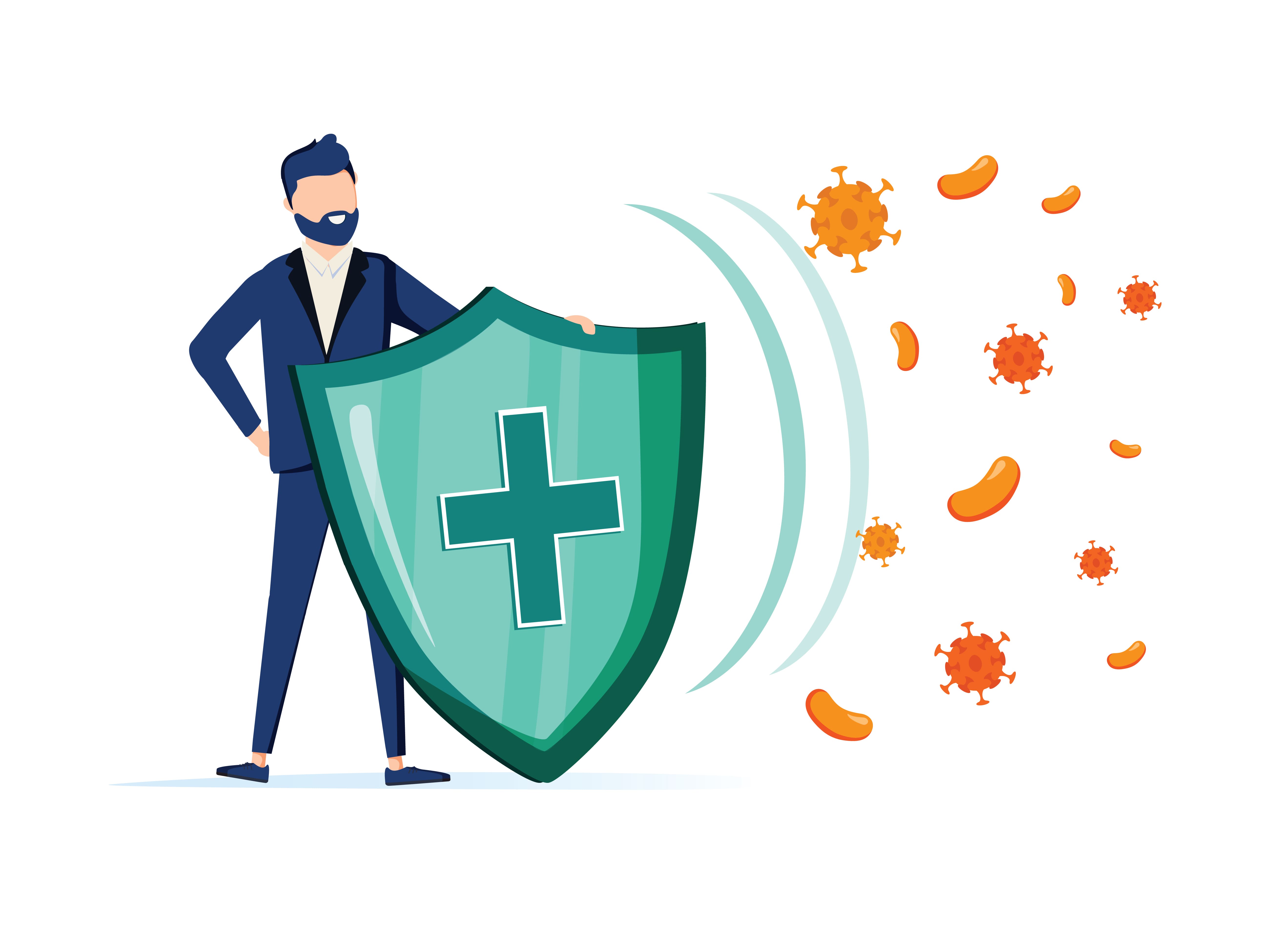
Preventing infections is absolutely imperative as a COPD patient. Lung infections are the most likely cause of flare-ups and exacerbations, and they’re also the most likely cause of someone being admitted to the hospital due to COPD. So, whenever you go to brush or floss your teeth, think of it as being beneficial for your full-body wellness rather than just your teeth and gums.
What Can be Done to Improve Your Oral Hygiene?
Brush More Frequently
Possibly the simplest way to improve your oral hygiene is to brush and floss more frequently. With the busy schedules that many people have nowadays, it can be hard to find the time to brush twice a day and floss, but it’s the best thing you can do for your oral health. People tend to skip flossing, but this is the only way to reach the bacteria between your teeth where it can cause the most harm. Be sure to brush your teeth at least twice a day and floss at least once a day.
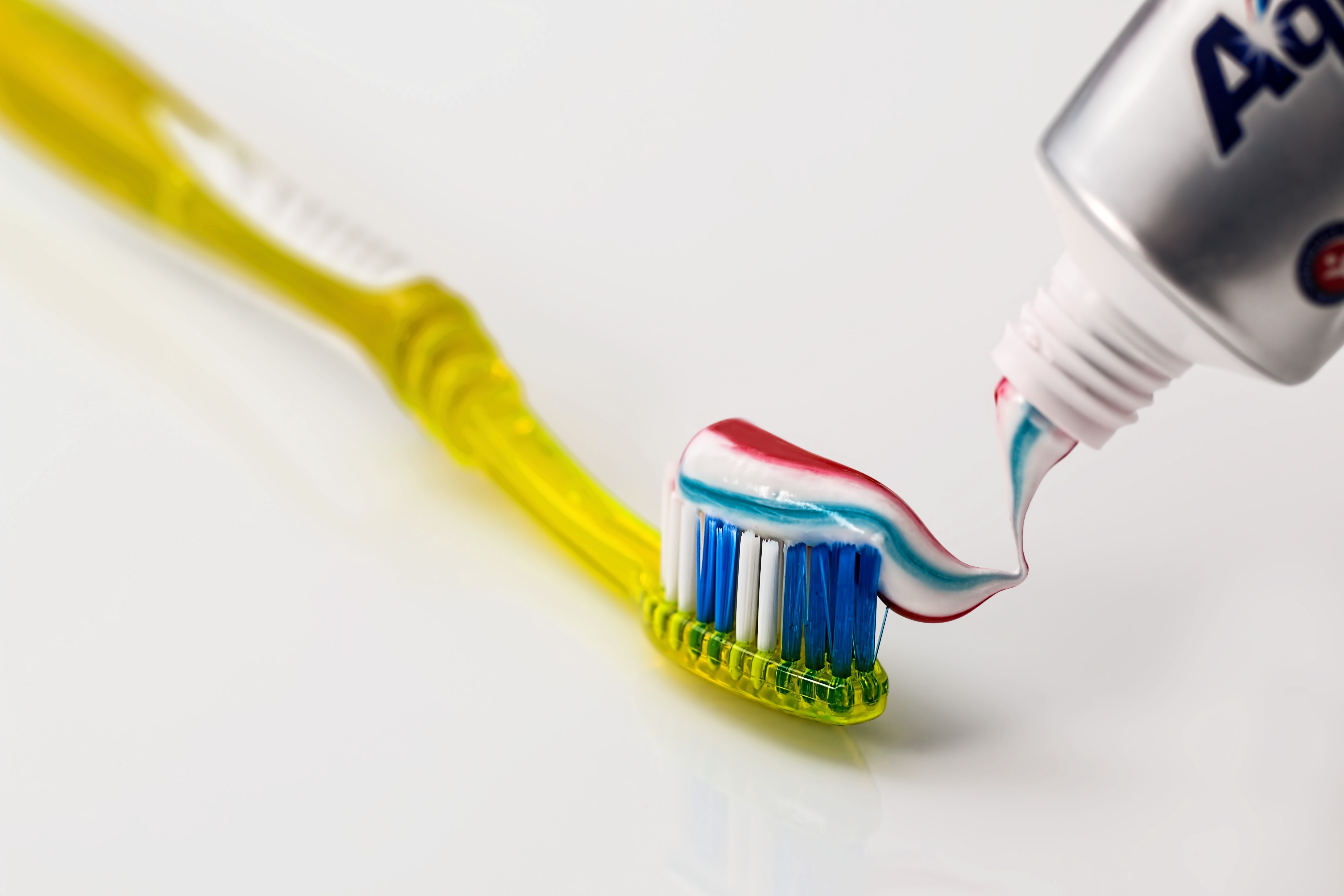
Drink More Water
Proper hydration not only helps with organ function, but it can also help prevent cavities. When you think about all of the different foods you consume in a day, it’s not hard to see why this is so important. Water removes food from between your teeth, prevents dry mouth, and can dilute acids that stain and eat away at your teeth. Rather than drinking a bunch of water in the morning or right before bed, try drinking water throughout the day, especially during meals. This way, food particles don’t have the opportunity to latch onto your teeth and cause damage.
.jpg)
Schedule Regular Teeth Cleanings
While you can and should take your dental health into your own hands, it’s also important to see a dental specialist regularly. Even if you are careful with your brushing and flossing, any leftover plaque on your teeth when you go to bed at night will turn into something called tartar. This is basically a hardened version of plaque that can only be removed with special tools by your dentist. Another reason to schedule regular teeth cleanings is so that your dentist can make sure your teeth and gums are healthy and that you’re on the right track. Dental issues are almost always easier to fix when they’re detected early on.
Consider Dental Implants
It’s estimated that about 90 percent of people with no teeth use dentures. And while dentures can improve your smile, they don’t provide any benefits when it comes to eating. Dental implants, on the other hand, essentially provide you with a new pair of teeth that are just as effective as natural ones when it comes to chewing. In other words, you’ll be able to keep up with the dietary requirements that your doctor gave you to help you manage COPD. Dental implants can be used to replace just one missing tooth or a whole mouth of missing teeth.
.jpg)
The important thing to remember with dental implants is that your oral hygiene is still incredibly important. While implants can’t decay like your natural teeth can, you will still need to keep your gums healthy in order to prevent gum disease and periodontal disease. When you get dental implants, you will be provided with special cleaning tools and instructions on how to maintain your new teeth. Not everyone is a candidate for dental implants so you’ll need to schedule an appointment with a periodontist to see if they’re right for you.
Conclusion
There is a two-way road between your oral health and your lung health. Years of smoking and the development of COPD can contribute to problems like tooth decay and gum disease. On the other hand, maintaining a poor dental health regime can cause flare-ups in your respiratory symptoms. In other cases, poor dental health and poor respiratory health can contribute to comorbidities like heart disease, poor circulation, and more.
While you have a lot to worry about like making it to doctor’s appointments and pulmonary rehabilitation, it’s always important to make time for your oral health as well. The American Dental Association recommends brushing your teeth at least twice a day with fluoride toothpaste and you should go in for teeth cleanings every six months. And if you have any additional concerns about how COPD could affect your oral health, be sure to speak with your doctor immediately.
{{cta('43b79c5e-6bd6-4f02-ac27-2d038d20c146','justifycenter')}}
Lastly, if you’re a COPD patient looking for a better solution for your oxygen needs than a bulky oxygen tank, take some time to look through our portable oxygen concentrators here at LPT Medical. POCs are electronic oxygen delivery devices so you’ll never have to refill them. They’re also extremely travel-friendly and easy to use. We recommend the Inogen One G5 and Caire FreeStyle Comfort to most patients, but you can learn more about the specifications by reaching out to our respiratory specialists.

